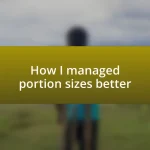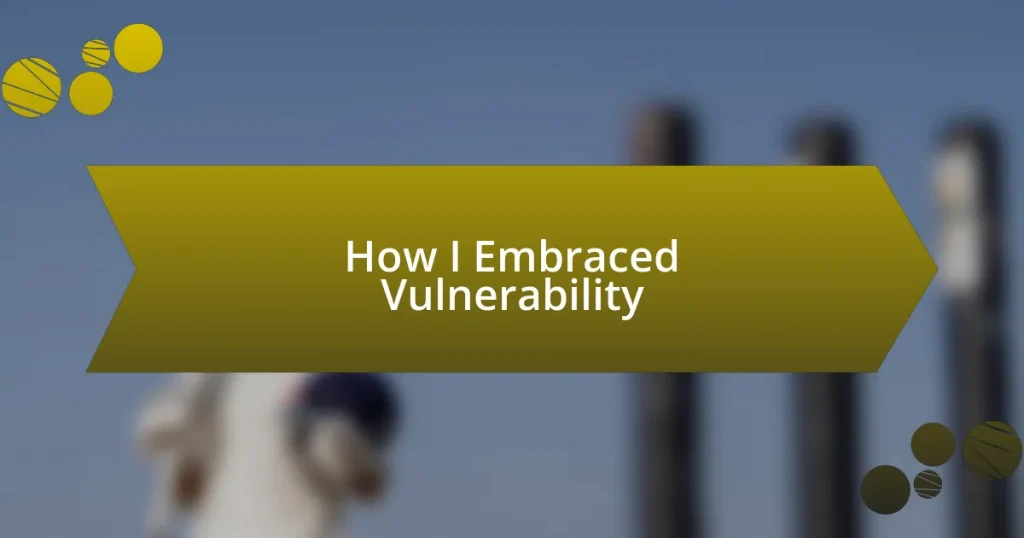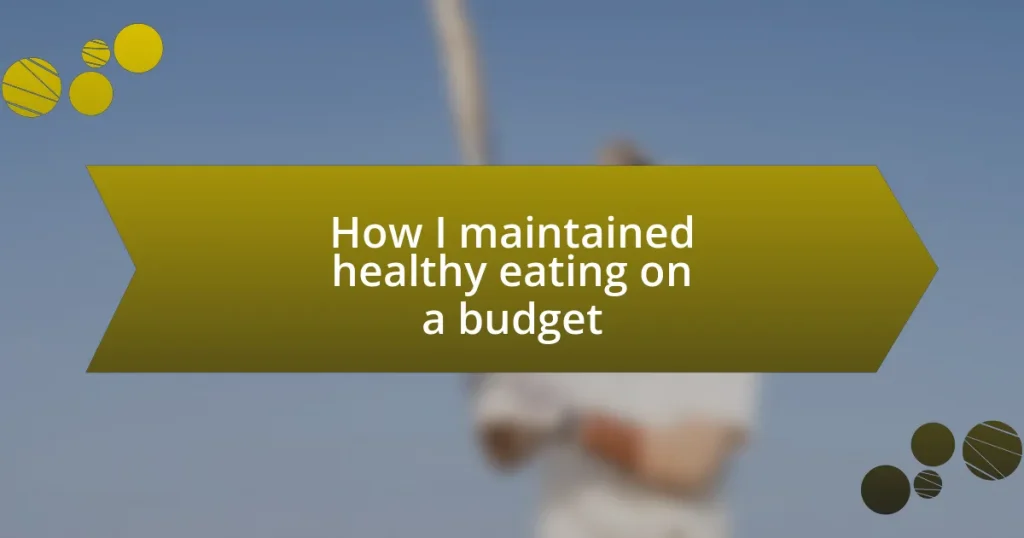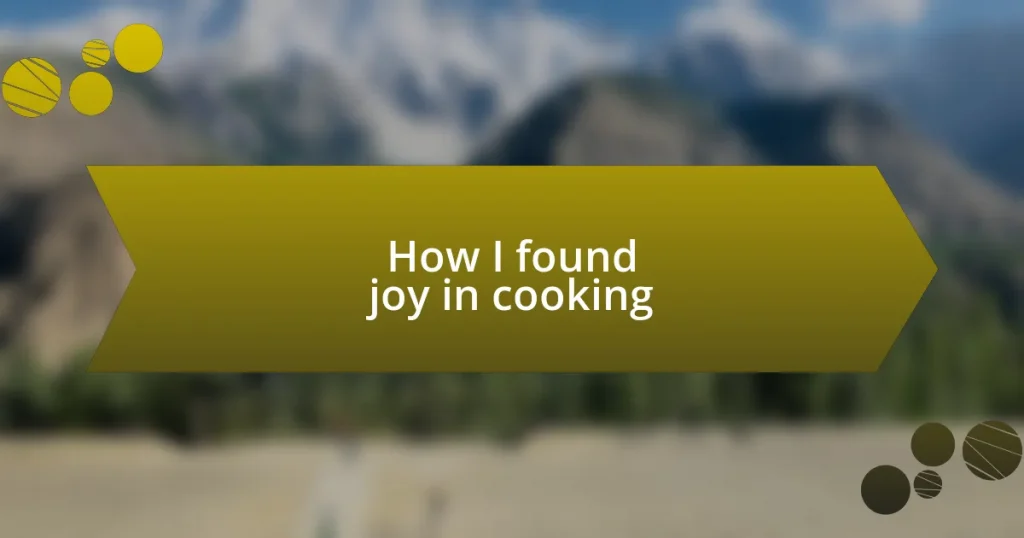Key takeaways:
- Embracing vulnerability fosters deeper connections and promotes personal growth through shared experiences and honesty.
- Recognizing and confronting personal fears transforms feelings of paralysis into opportunities for camaraderie and support.
- Practicing emotional honesty and creating supportive environments encourages meaningful relationships and collective resilience.
- Vulnerability over time becomes a source of strength, enabling individuals to face challenges with greater empathy and self-acceptance.
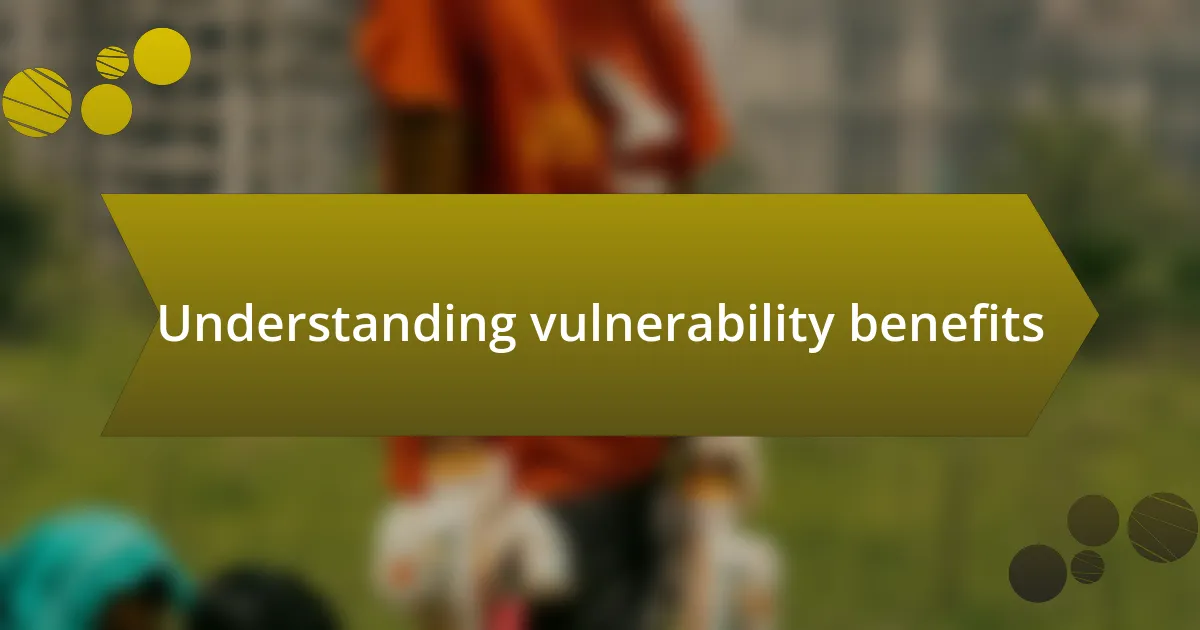
Understanding vulnerability benefits
Embracing vulnerability has been a game-changer in my life, allowing me to forge deeper connections with others. I remember a time when I shared my struggles with a close friend, and their response made me feel seen and understood. It made me realize that honesty often invites empathy, creating bonds that flourish on mutual understanding.
When I think about the courage it takes to be vulnerable, I can’t help but wonder: Why do we often resist it? Vulnerability pushes us to confront our fears, leading to remarkable personal growth. I once took the plunge and led a workshop sharing my insecurities. The vulnerability I displayed not only helped me grow, but it also encouraged others to share their own experiences, fostering a supportive community around us.
I’ve discovered that vulnerability also opens doors to creativity and innovation. It’s in those moments of honesty that we access our true selves. Personally, I’ve found that when I write or share from a vulnerable place, the authenticity resonates more with my audience, igniting deeper conversations. Isn’t it fascinating how being open can actually enhance our expressions and creativity?
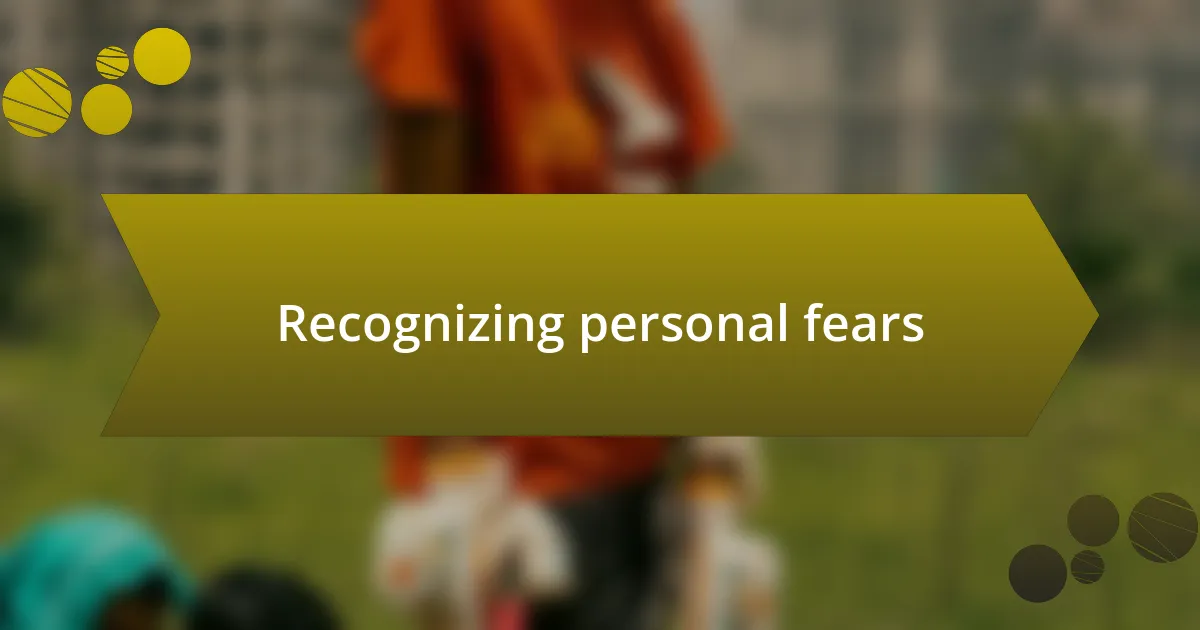
Recognizing personal fears
Recognizing personal fears is a crucial step in embracing vulnerability. I vividly recall a time when fear gripped me before an important presentation. I realized that the anxiety was rooted in the fear of judgment; everyone experiences that, don’t they? By recognizing this fear, I learned to manage it, transforming a potentially paralyzing situation into a powerful opportunity for growth.
As I navigated my personal fears, I identified patterns in what intimidated me the most, such as public speaking and forming new relationships. By acknowledging these fears instead of dismissing them, I began to see them as a part of my journey. Understanding that fear is a universal experience shifted my perspective, allowing me to speak openly about my discomfort. I found solace in this realization; it connected me to others who faced the same struggles.
Fear can be overwhelming, but I’ve found that confronting it often reveals powerful insights. For example, I once shared with a group what scared me about failure. The vulnerability in that moment not only lightened my burden but also encouraged others to share their apprehensions. It’s remarkable how recognizing our fears can serve as a bridge to vulnerability, creating camaraderie and support among those willing to take the leap.
| Fear Type | Emotional Insight |
|---|---|
| Fear of Judgment | Can lead to isolation if unaddressed. |
| Fear of Failure | Often creates a sense of paralysis. |
| Fear of Rejection | Can hinder open communication. |
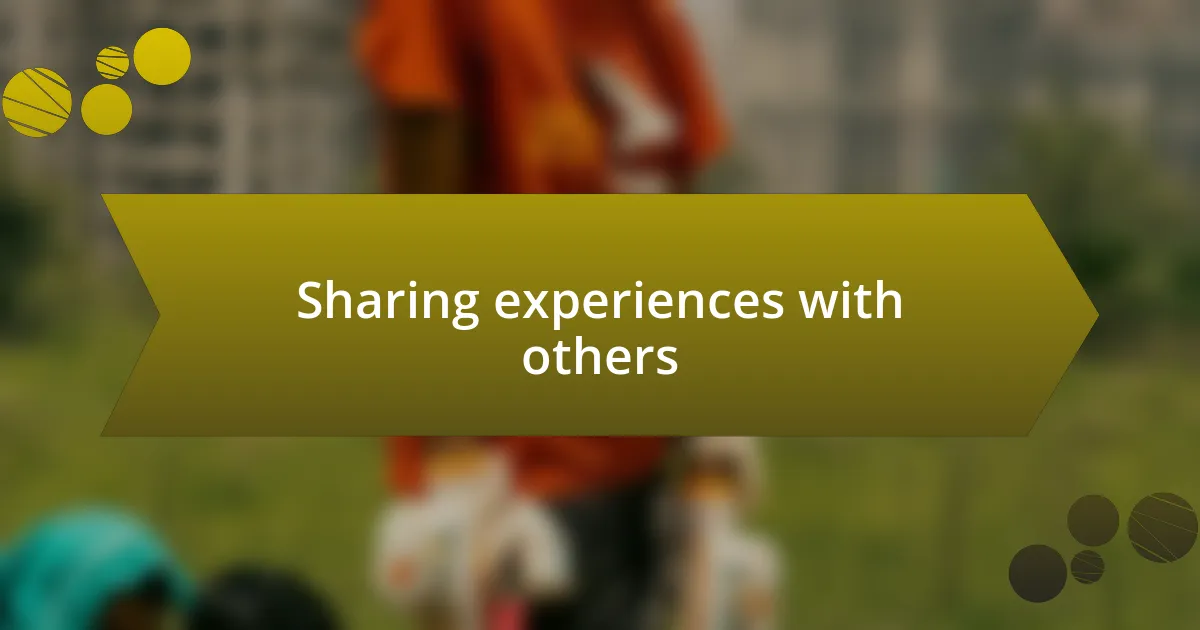
Sharing experiences with others
Sharing experiences with others has been a transformative practice for me. I remember attending a support group where I hesitantly shared a painful chapter of my life. The moment I opened up, I felt an incredible weight lift off my shoulders. It was astonishing how my struggles resonated with others, fostering a sense of connection and understanding. This shared vulnerability created a safe space where everyone could express their emotions without fear of judgment.
Here are some reasons why sharing experiences is so impactful:
- Builds Trust: When we share our stories, we foster genuine connections that deepen relationships.
- Encourages Healing: Opening up about past challenges can help us process our emotions and feel less alone.
- Inspires Others: Sharing my journey has inspired others to embrace their own vulnerabilities, proving that we are all human.
- Creates Community: Vulnerable conversations often lead to the formation of support networks where individuals uplift each other.
In my journey, embracing these moments of shared experiences not only enriched my life but also taught me the profound power of vulnerability in connecting with others.
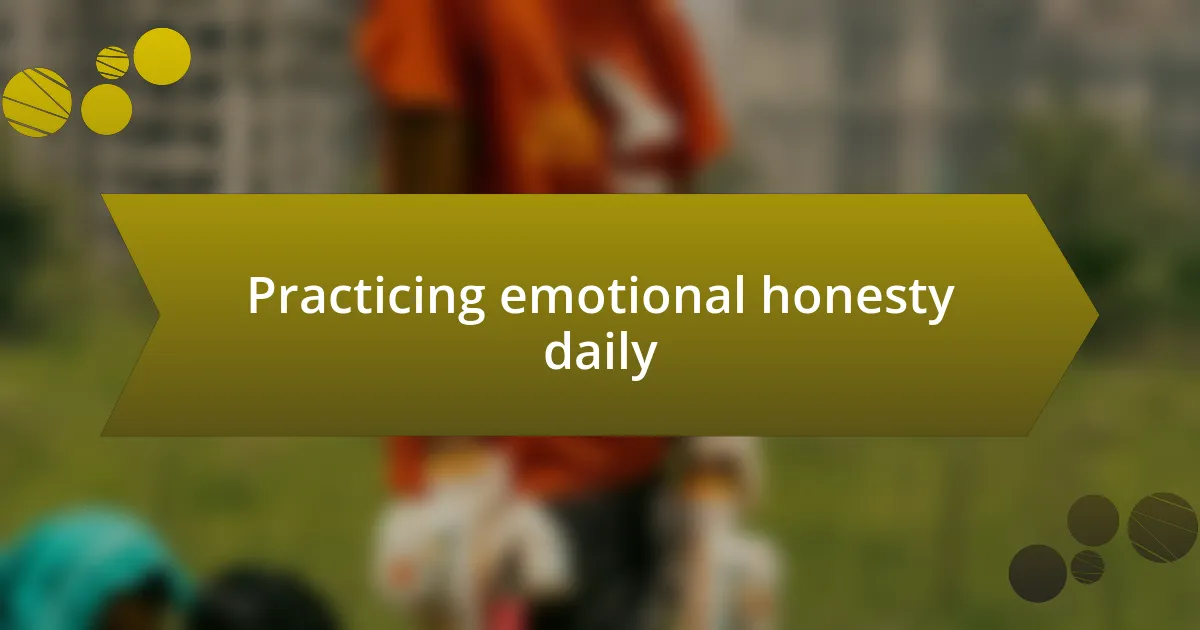
Practicing emotional honesty daily
Practicing emotional honesty daily requires a commitment to being true to myself and my feelings. I recall a day when I was feeling overwhelmed and anxious, and instead of hiding it, I simply told my colleague, “I’m not okay today.” The relief of being open about my emotions transformed the rest of my day, allowing for authentic connections rather than pretending everything was fine.
Being emotionally honest doesn’t always mean baring my soul to everyone. Sometimes, it’s as simple as allowing myself to express frustration when things aren’t going well. I remember attending a family gathering where I opened up about my recent struggles with work-life balance. This admission sparked a deeper conversation that revealed how many of us were grappling with similar feelings, turning what could have been a superficial gathering into a meaningful dialogue.
Do you ever feel like you’re wearing a mask? I’ve found that committing to small daily practices of emotional honesty—like sharing my thoughts in a journal or voicing my true feelings in conversations—has gradually helped me drop that mask. Each time I embrace vulnerability, I learn more about myself and deepen my connections with others. It’s in these moments of honesty that I discover how much strength lies in being human together.
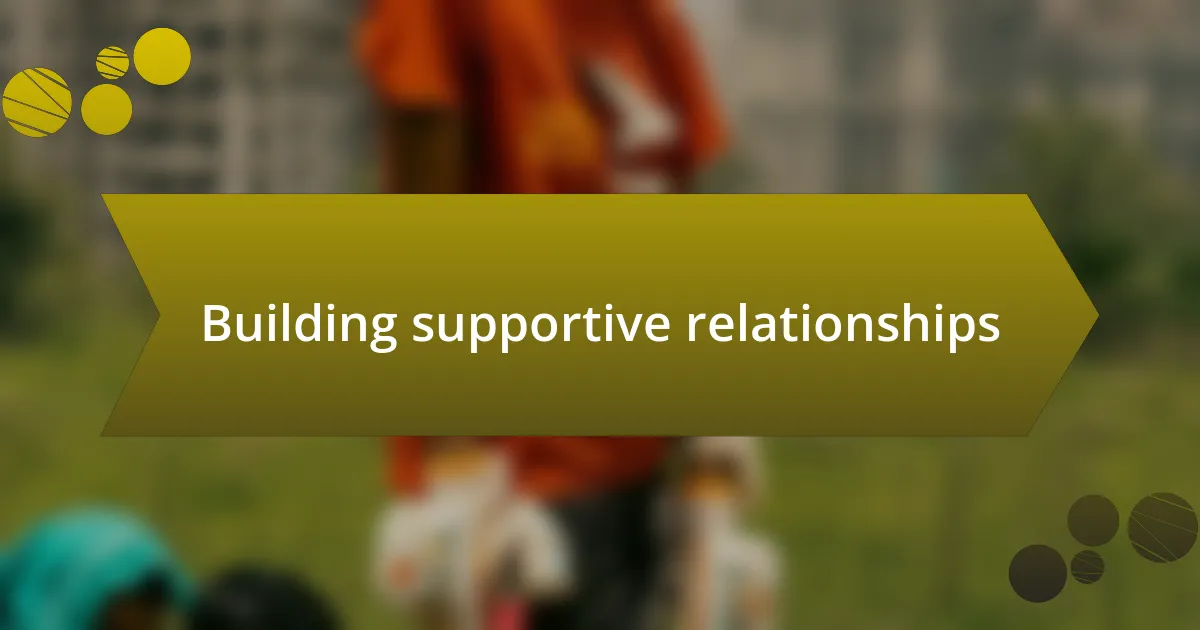
Building supportive relationships
Building supportive relationships begins with being present and willing to nurture connections. I’ve found that when I actively listen to friends without giving unsolicited advice, it fosters a safe space for them to share their thoughts and feelings. One night, while catching up over coffee, a friend opened up about her struggles, and I realized that just being there was enough to help her feel understood.
Creating an environment where vulnerability is encouraged often requires me to lead by example. I remember a time when I shared a setback I’d experienced in my career with a group of close friends. Instead of dismissing my feelings, they embraced my honesty and reciprocated with their own challenges. This exchange transformed our bond into something far more profound, reminding me that we all face difficulties and highlighting the strength in unity.
Have you ever noticed how relationships deepen when we allow ourselves to be imperfect? A few months ago, I confided in a friend about my anxiety regarding an upcoming life change. Her immediate response was a relatable story of her own fears, making it clear that vulnerability opens the door to compassion. This kind of mutual support makes it easier to build a network where we uplift each other, ultimately fostering growth in all aspects of our lives.
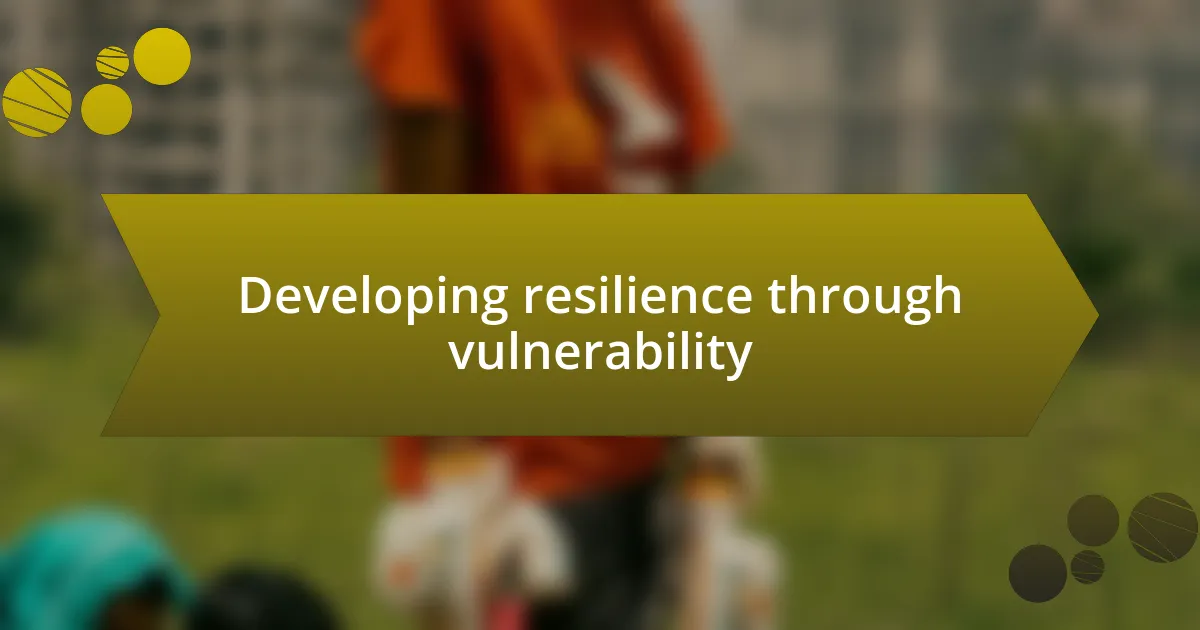
Developing resilience through vulnerability
When I first started acknowledging my vulnerabilities, I quickly realized that resilience isn’t just about bouncing back—it’s also about embracing the discomfort that comes with being open. I vividly remember a time I spoke candidly about my fear of failure in front of a workshop group. Sharing that fear not only made me feel vulnerable but also ignited a powerful conversation. Others began to share their similar fears, and suddenly, we transformed a moment of individual worry into collective strength.
It became clear to me that vulnerability wasn’t just an act of courage; it was a pathway to resilience. Recently, during a particularly challenging period at work, I decided to share my struggles with my colleagues. I thought they would see me as weak, but instead, I found an unexpected response. They rallied around me, sharing their own challenges, and suddenly, we were not only supporting each other but also becoming stronger together. This experience taught me that by leaning into our vulnerabilities, we create a robust support system that fosters resilience.
Have you ever felt that weight lifted when you realize you’re not alone in your struggles? I certainly have. It’s in those raw, honest conversations that I’ve discovered resilience grows. Each time I allow my guard to drop and expose my fears, I gain not only empathy from others but also a deeper understanding of my own strengths. This evolving journey strengthened my resilience in ways I hadn’t anticipated, and I encourage you to explore your own vulnerabilities—there’s incredible power in them.
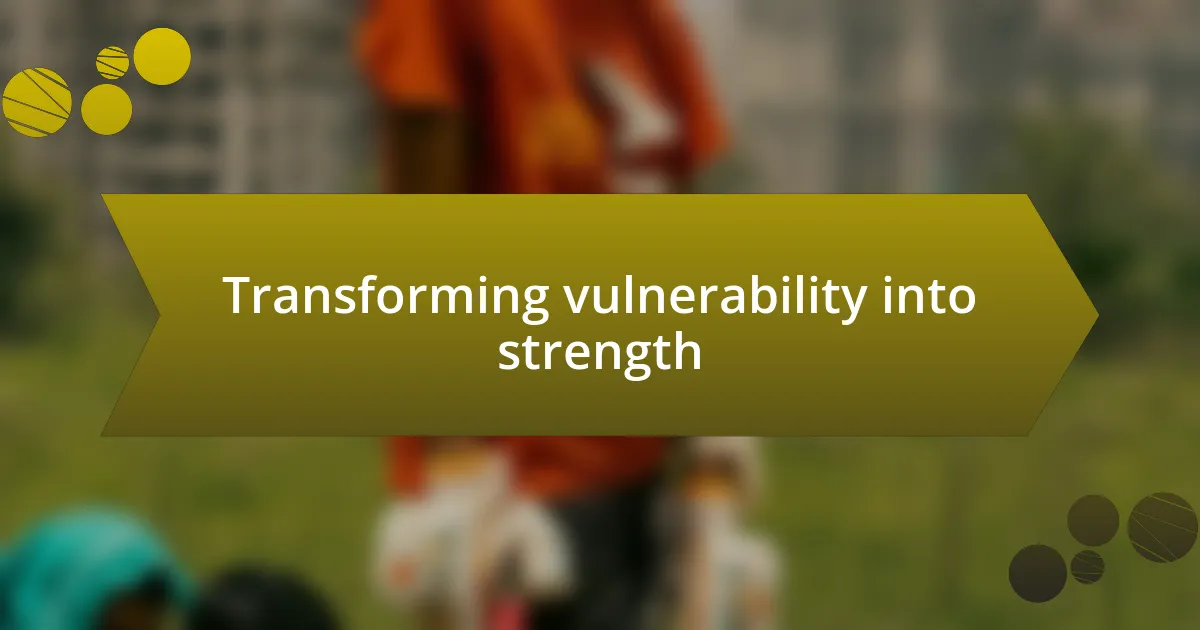
Transforming vulnerability into strength
Embracing vulnerability has, for me, been a transformative experience that often feels counterintuitive. I remember sitting in a meeting, feeling overwhelmed and unsure. Instead of masking my uncertainty, I chose to voice it, sharing my doubts about the project. In that moment, I discovered that my colleagues didn’t see weakness—they appreciated my honesty. This openness not only built trust but sparked innovative ideas we hadn’t considered when everyone was just pretending to be confident.
One profound realization came during a difficult period in my life when I shared my struggles with a close friend. I was afraid of what they might think, but to my surprise, my vulnerability opened the door for them to share their own challenges. It felt incredibly powerful to know that my willingness to be authentic created a shared space for both of us to explore our fears. Isn’t it fascinating how vulnerability can forge deeper connections?
Looking back, I can see how each experience of exposing my vulnerabilities has not only strengthened my relationships but also reinforced my self-acceptance. I used to shy away from expressing my emotions, fearing judgment, but now, I see vulnerability as a source of strength. When I allow myself to be seen, flaws and all, I cultivate a resilience that empowers me to face challenges head-on. Have you considered how your vulnerabilities might be your greatest assets?
